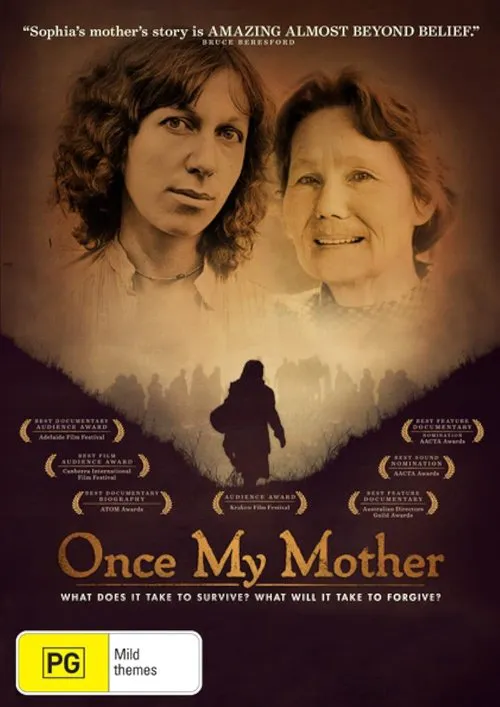Once My Mother

Plot
Once My Mother is a 2006 Australian documentary film that delves into the director Sophia Turkiewicz's investigation into her mother's past, tracing back to the Second World War and a pivotal escape from a Siberian gulag. The film is a poignant and deeply personal journey, as Sophia seeks to understand why her mother left her behind and grapples with the aftermath of their complex and often troubled relationship. The story begins in the present day, as Sophia Turkiewicz returns to her childhood home in Australia, accompanied by a tape recorder and a determination to confront the long-held secrets of her family's past. Born to a Polish mother and an Australian father, Sophia's early life was marked by an emotional distance between her and her mother, who was often preoccupied with her own pain and trauma. As a child, Sophia sensed that her mother was hiding something, but the specifics of her mother's past remained a mystery. As Sophia sets out to uncover the truth about her mother's wartime experiences, she embarks on a journey to Poland and Siberia, retracing the footsteps of her mother's escape from the Soviet Union after World War II. The film becomes a fascinating exploration of the human cost of war, as Sophia encounters a cast of characters who share their own stories of survival and loss. Through interviews with her mother, as well as with other survivors of the gulag, Sophia uncovers a narrative of trauma and resilience that has shaped her family's history. We learn that Sophia's mother, along with her two sisters, was deported from Poland to Siberia, where they endured the harsh conditions and brutality of the gulag. The sisters were eventually separated, and Sophia's mother was forced to flee, leaving behind her young daughters, including Sophia's aunt, who would become a lifelong secret. As Sophia delves deeper into her mother's story, she begins to confront her own feelings of abandonment and rejection. Why did her mother leave her behind? What drove her to keep this secret hidden for so long? Through a series of poignant and often emotional conversations with her mother, Sophia struggles to reconcile their complex and often strained relationship. The film's title, Once My Mother, becomes a powerful metaphor for the complex and shifting nature of family relationships. As Sophia excavates the past, she slowly comes to realize that her mother was not a monolithic figure, but a multifaceted and deeply human person, shaped by the traumatic events of her own life. In the process, Sophia is forced to reevaluate her own capacity for forgiveness, as she grapples with the moral complexities of her mother's choices. Throughout the film, Sophia's directorial approach is characterized by a quiet intimacy and a willingness to confront the dark shadows of her family's past. As she listens to her mother's stories, Sophia is not simply collecting historical evidence, but engaging in a deeply personal and emotional dialogue. This approach allows the audience to experience the story on a deeply personal level, as they are drawn into the complex and often fraught relationship between Sophia and her mother. Ultimately, Once My Mother is a powerful exploration of the human condition, one that underscores the complexities of family relationships, the enduring impact of trauma, and the power of forgiveness. Through her meticulous research and emotional storytelling, Sophia Turkiewicz creates a film that is both a tribute to her mother's survival and a powerful exploration of the human spirit. As the camera lingers on Sophia's introspective face, we are compelled to reflect on our own capacity for compassion, forgiveness, and understanding.
Reviews
Recommendations


